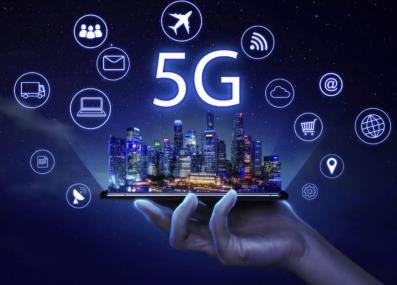5G Technology Impact: Revolutionizing the World

5G technology, the fifth generation of cellular networks, is poised to revolutionize the way we live, work, and interact. With its unprecedented speed, low latency, and massive connectivity capabilities, 5G is set to unlock a new era of innovation and possibilities. In this comprehensive blog post, we will explore the profound impact of 5G technology on various aspects of our lives, from healthcare and education to transportation and entertainment.
The Benefits of 5G Technology
- Enhanced Speed and Capacity: 5G offers significantly faster download and upload speeds compared to previous generations of cellular networks. This enables seamless streaming of high-definition content, ultra-fast gaming, and lightning-quick file transfers.
- Low Latency: 5G boasts incredibly low latency, meaning there is a minimal delay between sending and receiving data. This is crucial for applications that require real-time responsiveness, such as autonomous vehicles, remote surgery, and augmented reality.
- Massive Connectivity: 5G can support a massive number of connected devices simultaneously, making it ideal for IoT (Internet of Things) applications and smart cities.
- Improved Reliability: 5G networks are designed to be more reliable and resilient than previous generations, ensuring consistent connectivity even in crowded areas and challenging environments.
The Impact of 5G on Industries
- Healthcare: 5G is transforming healthcare by enabling remote monitoring, telemedicine, and robotic surgery. With 5G’s low latency and high bandwidth, healthcare providers can offer better care to patients, especially in remote areas.
- Education: 5G is revolutionizing education by providing access to online learning resources, virtual classrooms, and immersive educational experiences. Students can benefit from personalized learning and enhanced collaboration opportunities.
- Manufacturing: 5G is driving the adoption of Industry 4.0, enabling smart factories with interconnected machines and automated processes. This leads to increased efficiency, reduced costs, and improved product quality.
- Transportation: 5G is essential for the development of autonomous vehicles and advanced transportation systems. By providing reliable, low-latency connectivity, 5G enables vehicles to communicate with each other and infrastructure, ensuring safe and efficient transportation.
- Entertainment: 5G is enhancing the entertainment experience by enabling high-quality streaming, immersive virtual and augmented reality, and cloud gaming. Consumers can enjoy a more seamless and engaging entertainment experience.
Challenges and Considerations
While 5G offers immense potential, there are also challenges and considerations to address. These include:
- Deployment Costs: The initial deployment of 5G networks can be expensive, requiring significant investments in infrastructure and equipment.
- Spectrum Allocation: Ensuring sufficient spectrum allocation for 5G is crucial for its successful deployment and widespread adoption.
- Security Concerns: As 5G networks become more interconnected, it is essential to address security concerns and protect against cyber threats.
The Future of 5G
The future of 5G is bright, with ongoing advancements and innovations. We can expect to see even faster speeds, lower latency, and broader coverage. 5G will continue to drive innovation across various industries, transforming the way we live, work, and interact.
Conclusion
5G technology is a game-changer with the potential to revolutionize our world. By offering enhanced speed, low latency, and massive connectivity, 5G is unlocking new opportunities in healthcare, education, manufacturing, transportation, and entertainment. While there are challenges to overcome, the benefits of 5G far outweigh the costs. As 5G continues to evolve, we can expect to see even more transformative applications and a brighter future for our society.